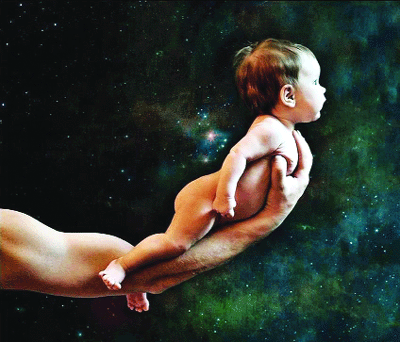How the soul deals with changes determines whether it will continue in the cycle of birth and death or progress towards liberation, writes AJIT KUMAR BISHNOI
A soul takes countless births, which means getting all kinds of material bodies. This goes on till the soul makes special efforts spanning a few lives in the human form and gets liberated. Prior to that millions of changes take place in the lives of a soul. How the soul deals with such changes determines whether it will continue in the cycle of birth and death or progress towards liberation. I am citing examples of souls who were blessed with human bodies, ie who could make choices, unlike animals, who are not thus blessed.
My first example is of a good man, who is stricken with a terminal disease in his old age. How should he reactIJ Should he feel cheated because he is a good man and has lived his life following moral principlesIJ Suppose he does feel thus, some will say rightly, what will happen nextIJ He will not accept this change in his body and continue to suffer even mentally till his death. What did he gainIJ By not accepting the inevitability of diseases in a material body, he went against the well laid out rules for a material body. In the Bhagavad Gita, lord Krishna exhorts us to get freed from birth, death, old age, etc related miseries by transcending the three modes and enjoy nectar (14.20). Rather the lord had called paying attention to the miseries and faults of birth, death, old age and sickness as real knowledge (13.8).
So what should have the old man doneIJ He should have accepted his terminal sickness as nothing unusual for a material body. Yes. Everyone does not get similarly stricken, but all die irrespective. He should have also not linked his being a good man to his disease. After all diseases are karmaphalas which fructify at different times in the soul’s eternal journey. He must have deserved this due to some karma done in the past. All karmas bear fruits independent of one another; good deeds do not cancel out bad ones.
Additionally, he should have paid attention to what the lord has indicated in the Bhagavad Gita or similar texts and taken shelter of God, whose parts we all are. This would have ensured his getting liberated in a few births by striving properly (6.45). This should have been the correct reaction of the old man. Not only would he have been able to tolerate his terminal disease better, he would have made a good start to his spiritual journey. By lamenting or blaming luck he gained nothing but only added to his misery.
Another example is that of a wife of a childless couple, who dies. What should the old man doIJ He should seek God’s company. The third example is of a couple who lose their young child. What should they doIJ They must accept it as destiny and go on with their lives. The fourth example is of a marriage which breaks down and children are left in the care of the mother. She should pick up the pieces and do her best for her children. The last example is that of an only son who separates from his parents. Rather than breaking down, they should try to live the best way possible for the rest of their lives.
What do all these examples indicateIJ That changes in our lives are inevitable, some are extreme like a death of a close relative, but their occurrence is not unusual, and should not be treated as a major disaster. We get what we deserve and it is up to us to pick up the pieces and move on. No one can be blamed for our woes, which are self-inflicted, though the cause may have been in some past life, which has come to fruition now.
What is the conclusionIJ That we, souls, do millions or even billions of karmas and they fructify at different times, but they are hardly significant if seen in a broad perspective. Rather we can gain by our misfortunes if we turn to God and begin working towards gaining liberation by following God’s instructions. Then, we have brought our eternal journey to a successful conclusion. And all the good deeds done from now will come to fruition thick and fast which we relish so much in the future lives. I welcome your comments.
Bishnoi is a spiritual writer and can be reached at spiritual@ajitbishnoi.com


























